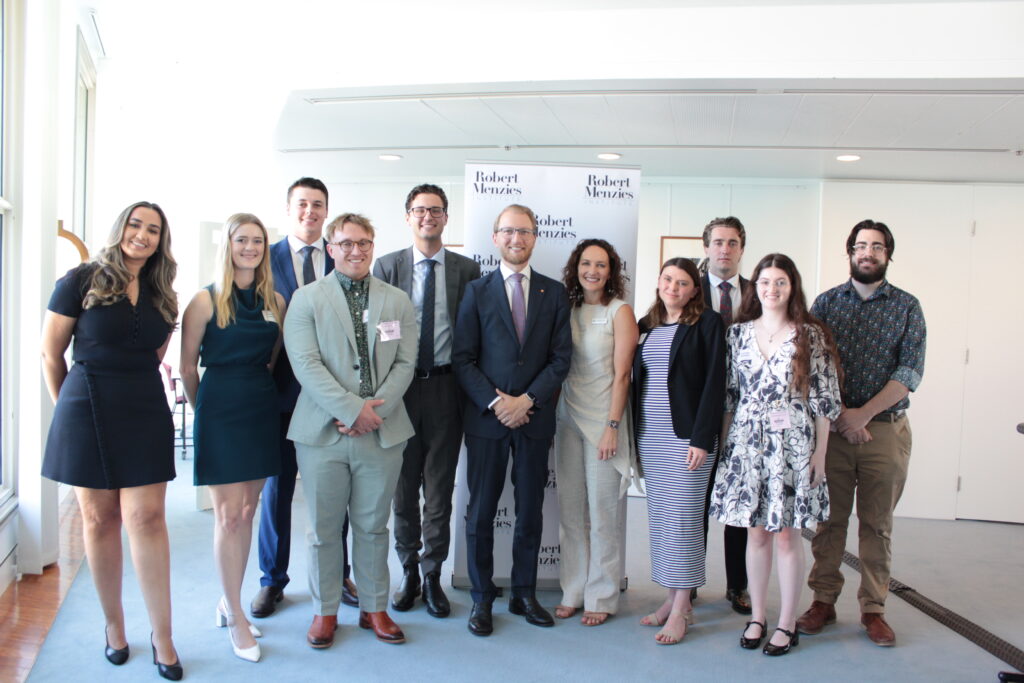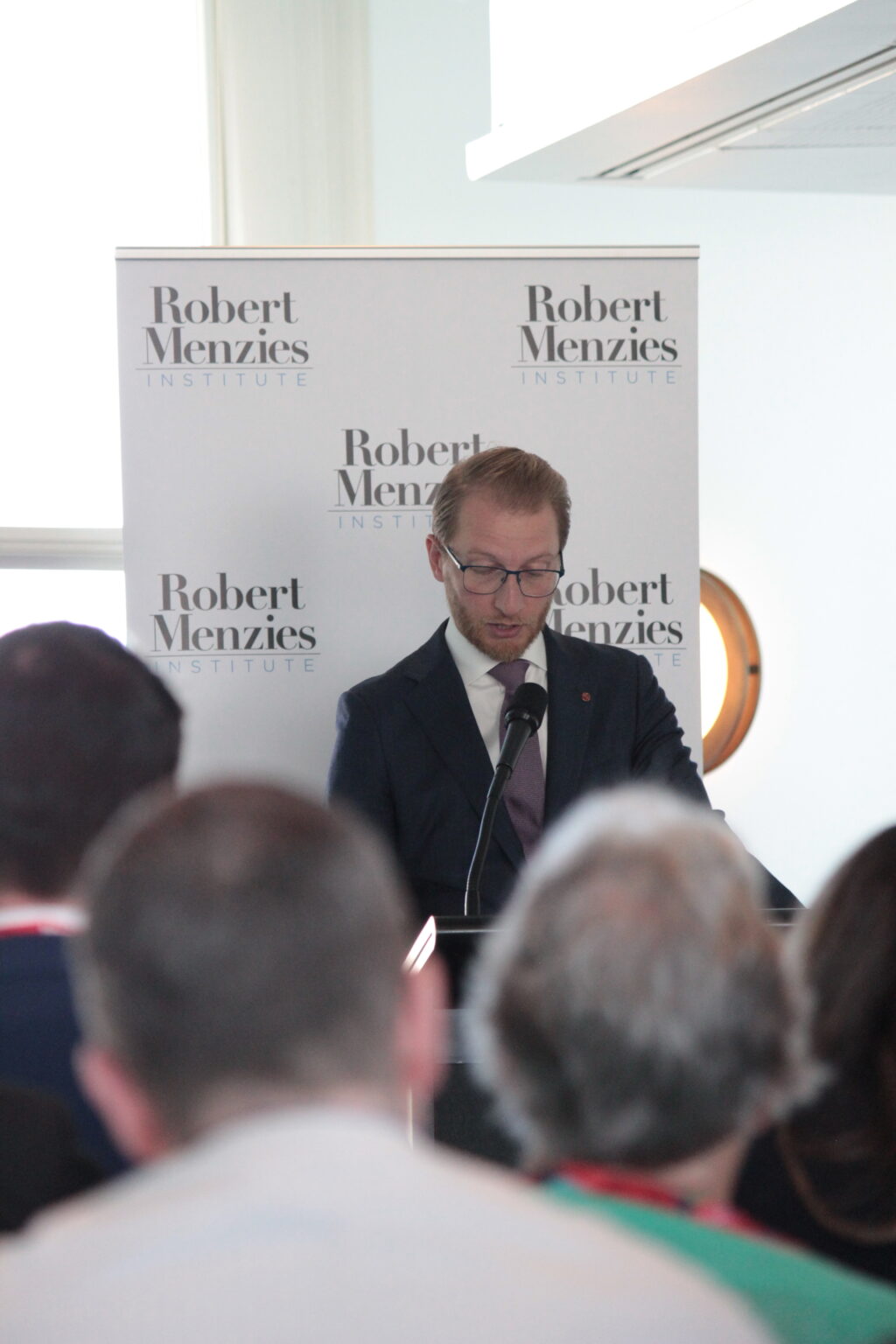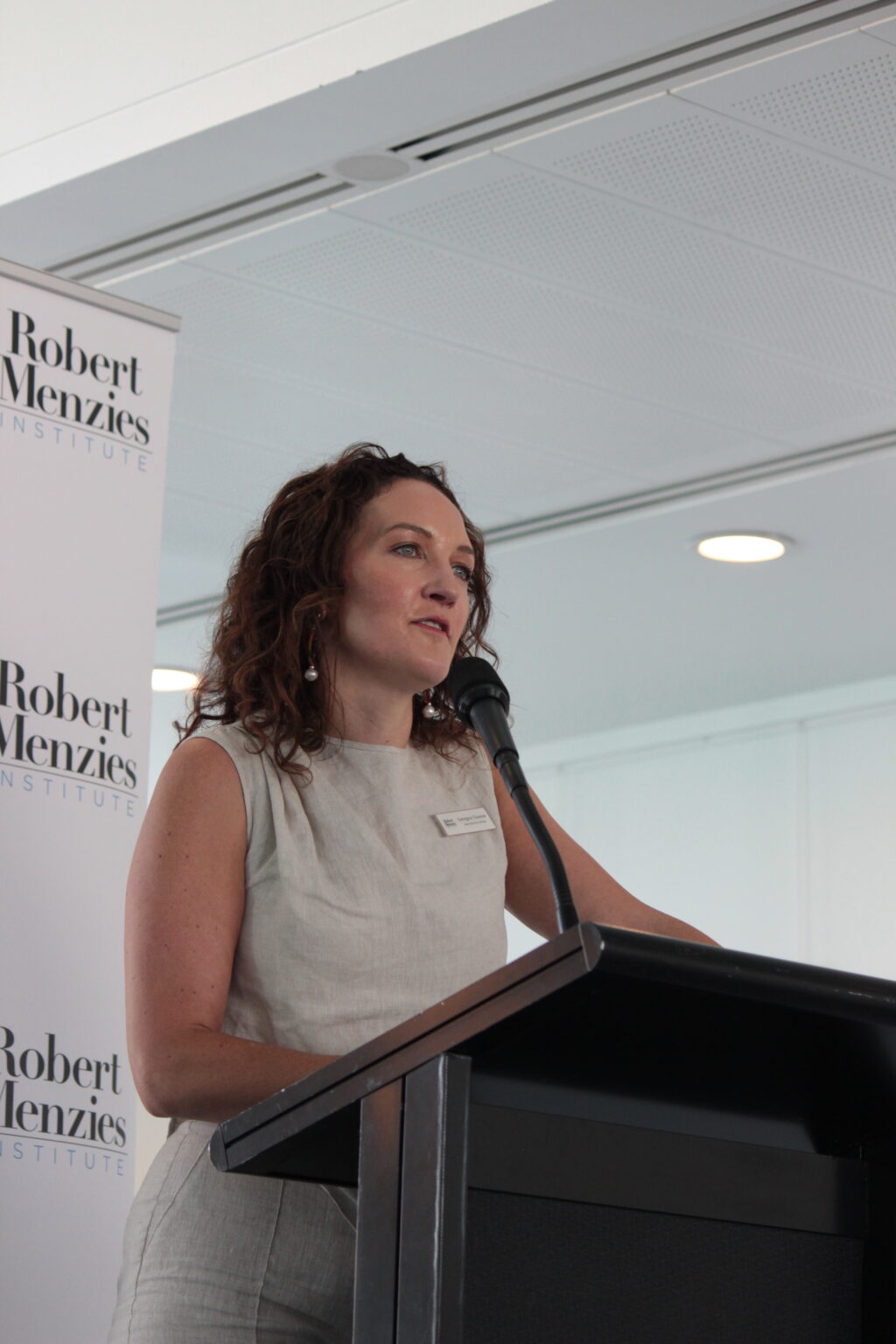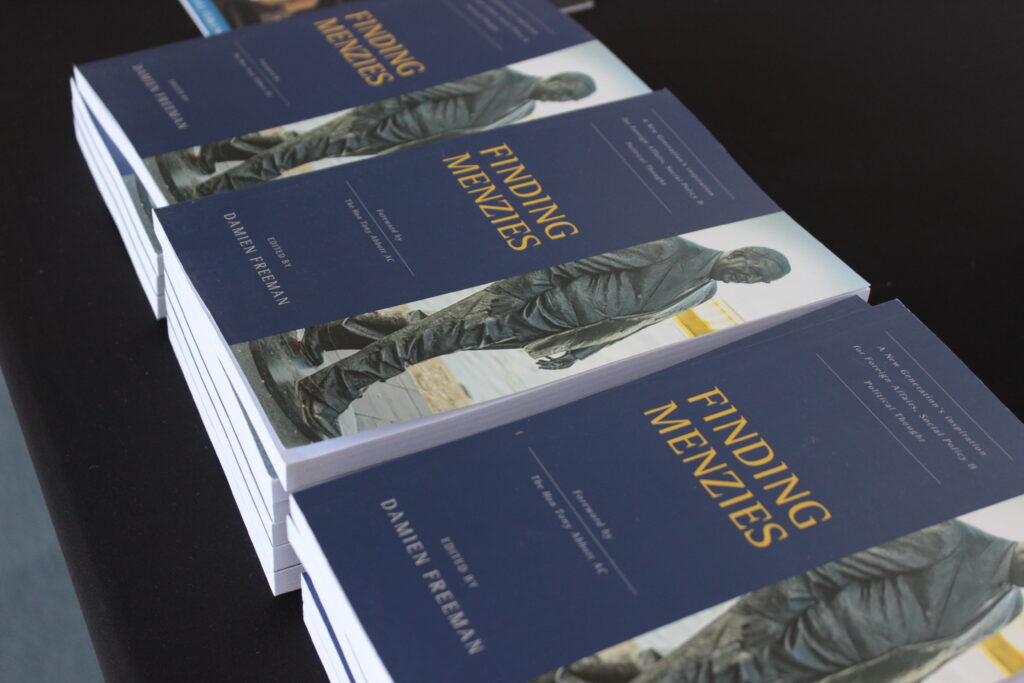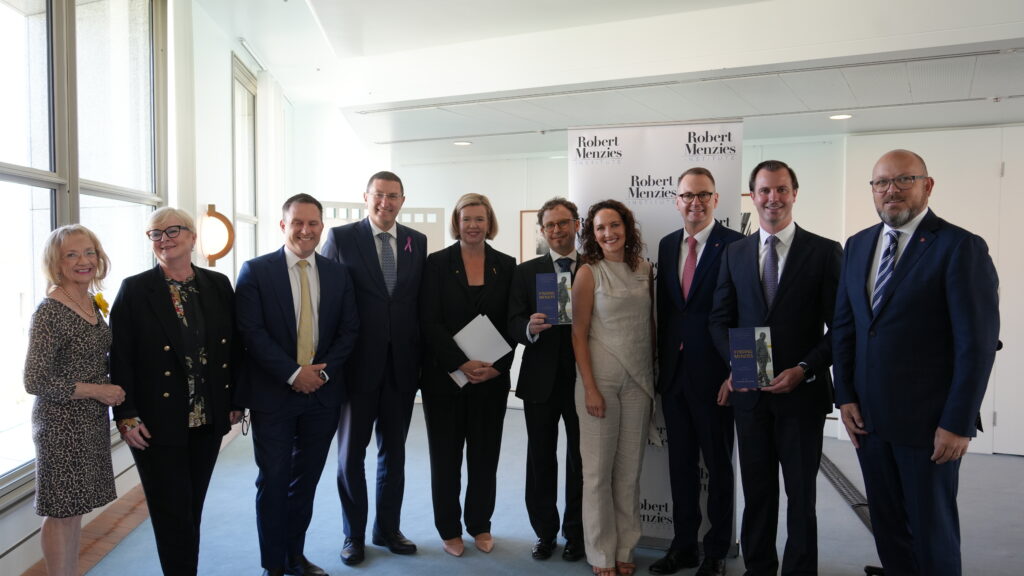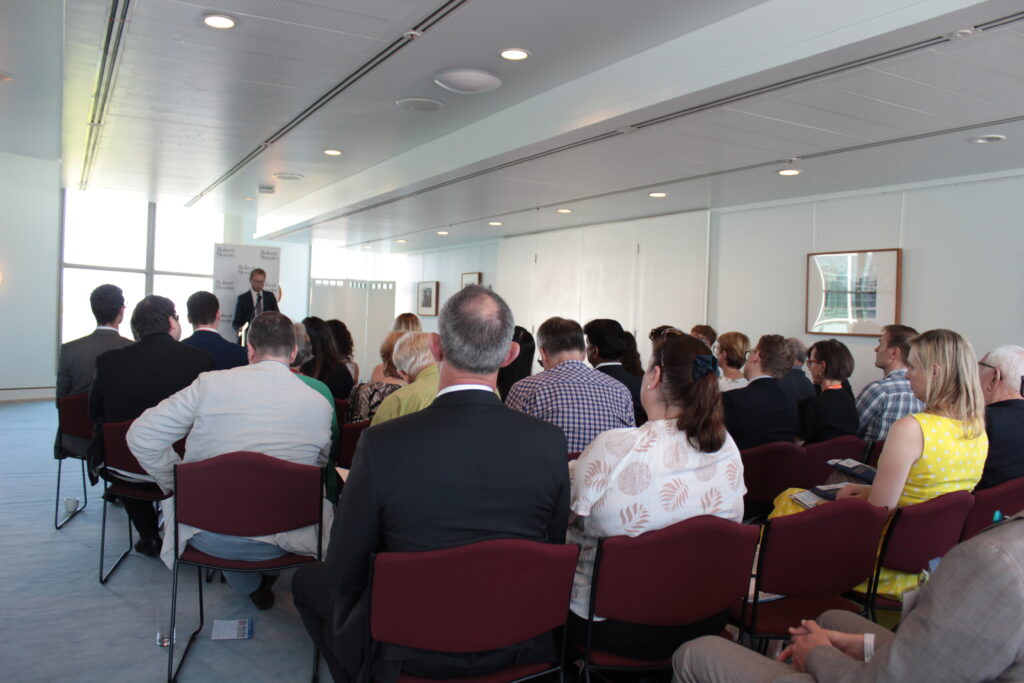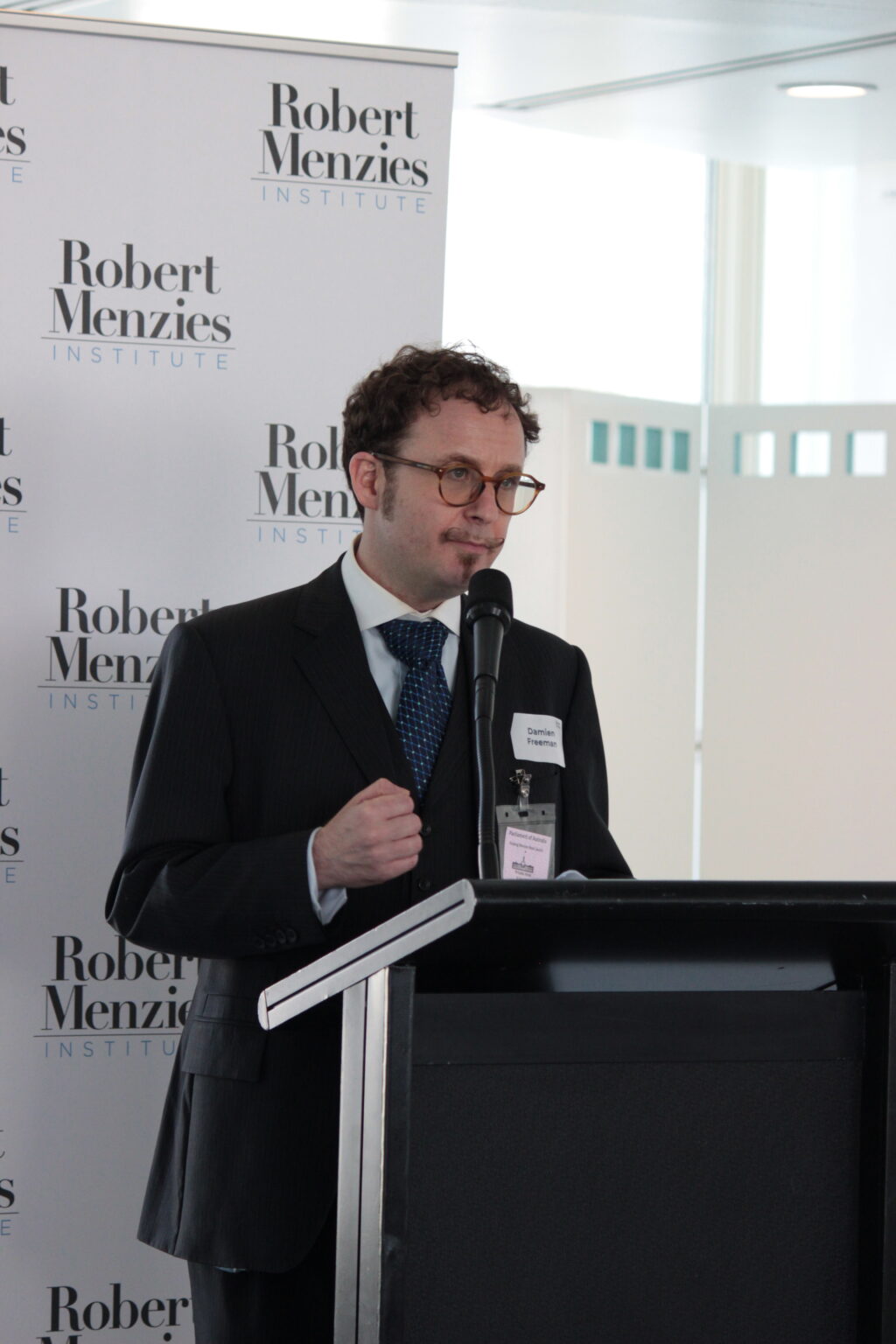The Robert Menzies Institute established the Menzies Early Career Network to create an opportunity for young Australians to engage with the history of the Menzies era and connect with like-minded peers and established figures interested in Australian political history.
To participate, prospective participants should demonstrate a high level of academic achievement as well as a personal interest in some aspect of Australian political history during the time that Menzies served in the federal parliament (1934-1966, non consecutively).
Participants may have formal training in Australian political history, but this is not a requirement for participation. What is required is enthusiasm for understanding the legacy of Sir Robert Menzies and his political era.
Participants will be encouraged to identify some topic that connects with their particular interests and will be supported in developing a deeper understanding of the relevance of historical analysis for contemporary understandings of those issues.
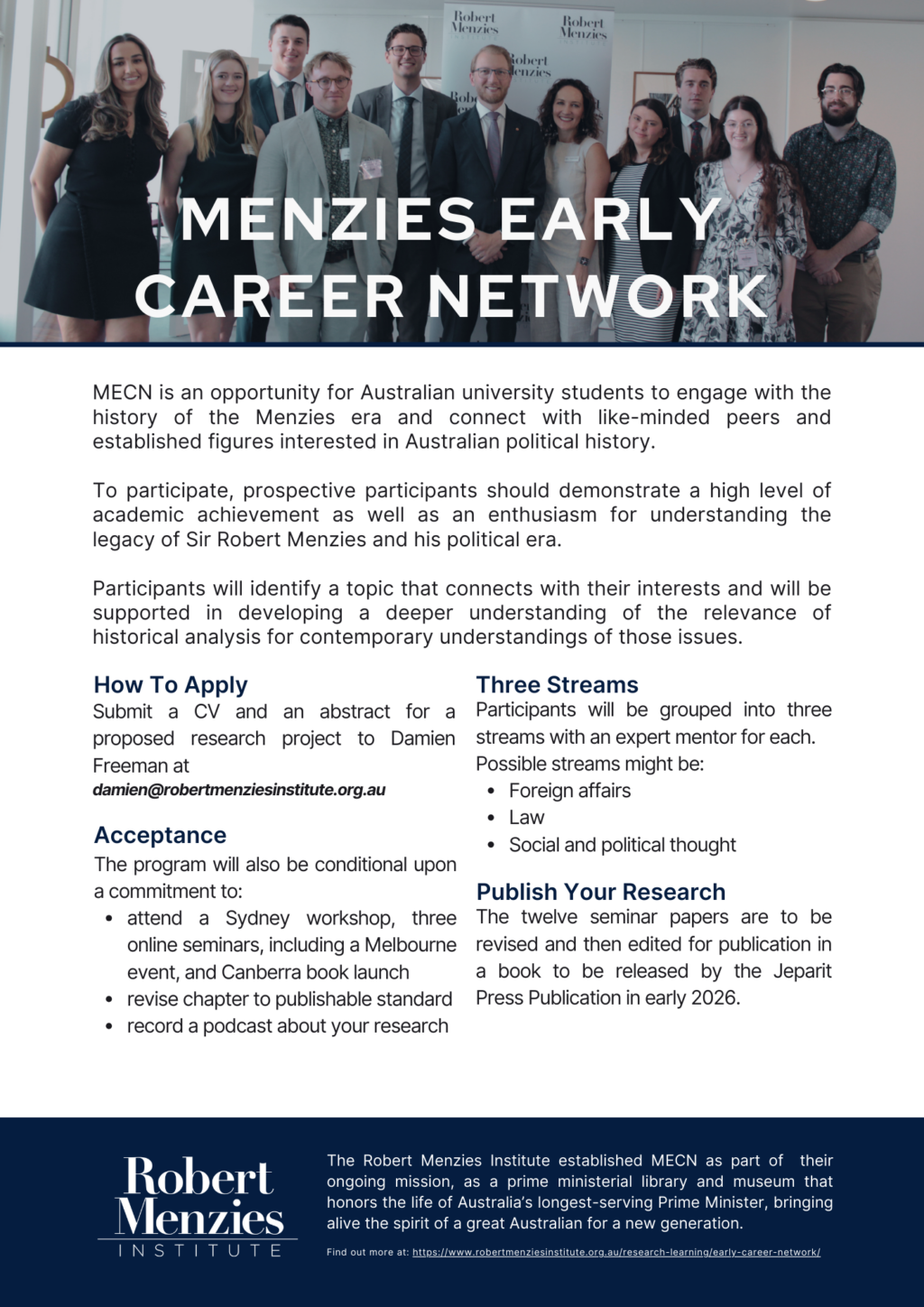
MECN 2025
Schedule
Programme
The programme will be run over a five-week period including:
- Week 1: One-day workshop in Sydney – see below for proposed schedule
Note: ten of the thirteen participants in 2024 were based in NSW/ACT This Sydney event could be combined with an RMI book launch/event that evening - Weeks 2-4: Three weekly two-hour online seminars – see below for structure
- Week 5: Concluding event in Melbourne combined with RMI dinner lecture or conference
Note: participants outside Melbourne would get a free flight, and those in Melbourne would get a free flight to the Sydney workshop, so everyone gets one free flight.
Opening workshop
- 1000 registration
- 1030 introductory session with Georgina Downer
- 1130 Lecture by Stream 1 expert mentor and discussion
- 1230 Lunch
- 1400 Lecture by Stream 2 expert mentor and discussion
- 1500 Lecture by Stream 3 expert mentor and discussion
- 1600 Workshop concludes
- 1800 optional invitation to join Georgina for standalone RMI evening event
Online Seminars
Weekly online seminars at 1730-1930
Each week there will be 15-20-minute presentations by four participants in that stream
Each presentation to be followed by a 10-15-minute response by the expert mentor and discussion
Opportunities
Jeparit Press publication
The twelve seminar papers are to be revised and then edited for publication in a book to be released by the Jeparit Press in early 2026.
Parliament House launch
Launch at Parliament House, Canberra, in 2026 following format of 2025 launch.
Afternoon Light Podcast
Podcasts with contributors about their chapters to be released in the Afternoon Light series to coincide with launch.
MECN 2024
Participants
Publication
The publication: Finding Menzies is the product of research undertaken by members of the Menzies Early Career Network, an initiative of the Robert Menzies Institute, which aims to nurture an appreciation of the enduring legacy of Menzies and his government in the next generation of Australian scholars as they embark on careers in history, law, and public life.
Contributors engage with Menzies’s understanding of Australia’s war aims and post-war relations with the UK, USA, and USSR; his approach to changes in families, housing, and education; and his attitude to liberalism, tolerance, aspiration, and Catholicism.
The collection addresses topics in Australian political history ranging from defence and foreign policy through to the rule of law and social and economic policy, as well as topics in the history of political thought and at the intersection of politics and religion.
Participant Podcasts
Search via Spotify, Apple Music, PodBean, via our website for the Afternoon Light Podcasts.
The available podcasts are by participants: Aaron Marston-Pattison, Abby Smith, Orlando Throsby, Jacob Carson, Nick Warren, Georgia Lowden, Josh Woodward, Jesse Seeberg-Gordon, Maya Khurana, Patrick Irwin, Priscilla Spalding, Samuel Chamberlain, and Scarlett Wakelin.
Finding Menzies - Launch Event
Finding Menzies: A new generation’s inspiration for foreign affairs, social policy and political thought was launched at Parliament House, Canberra in 2025.
Participants attended with their guests.
Senator James Paterson delivered this speech to the attendees.Read Speech Here
Photos of the event are attached below.
Sign up to our newsletter
Sign up for our monthly newsletter to hear the latest news and receive information about upcoming events.

